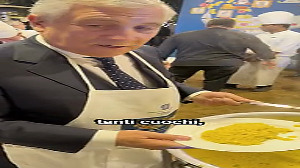The North Atlantic Treaty Organisation, the transatlantic military alliance synonymous with the Cold War, is in search of a facelift. A two-day Nato Summit being held in the Portuguese capital Lisbon on November 19 and 20, is aimed at setting the organisation upon a new path at a time when the alliance is beset with existential crises.
Defence cuts in Europe, a protracted and unpopular war in Afghanistan, ambiguous relations with its old enemy Russia and a range of dispersed, unconventional threats from cyber attacks to amorphous terrorist outfits, set the challenging background against which Nato is searching for continued relevance.
On Friday, the 28-member alliance will adopt what they call a new "strategic concept" an exercise last undertaken by Nato over a decade ago in 1999. The strategic concept is essentially a mission statement that aims to identify the threats likely to be faced by Nato over the next 10 years and the manner in which they can best be defended against. At the same time the organisation will reaffirm its core commitment to collective defence, as enshrined in Article 5 of the North Atlantic Treaty, which states that every Nato ally must come to the defence of any single member that is under attack.
It remains unclear however, how the new threats of the twenty first century can best be defended against. One idea is to move away from the focus on protecting territory to that of defending strategic interest. But the definition of "strategic interests" is open to debate. Similarly it may not be immediately evident what kind of cyber attack, for example, may warrant an Article 5 response. It may not even be clear at first who the instigators of such an attack are.
Nonetheless, the strategic concept is likely to be worded vaguely enough to be acceptable to all members and should be adopted by the end of the first day of the summit. Nato will also agree on a leaner organisational structure -- achieved by the dismantling of at least four of its 11 command bases -- as well as on modernising weapons defence.
The latter is the cause of both internal controversy within the Nato alliance as well as a major bone of contention with one of Nato's most important interlocutors: Russia. A crucial element of weapons' modernisation is the development of a territorial shield against ballistic missiles, which Nato hopes will be a key deliverable for the organisation in the coming years.
"I would expect the summit to make a decision on missile defence, which would be a very visible demonstration of our preparedness to improve our capabilities even during a period of economic austerity," Nato Secretary General Anders Fogh Rasmussen said at a meeting last month. However, the plan to develop a ballistic-missile defence (BMD) system has raised Russia's hackles with Moscow viewing it as aimed at undermining its nuclear deterrent. While Nato officials insist the proposed BMD is not designed to counter Russia -- a potential Iranian missile threat being more commonly pointed to as motivation -- the Kremlin has remained unconvinced.
However, Russian President Dmitry Medvedev will be in Lisbon for the summit, attending the first meeting of the Nato-Russia Council since the row over Georgia in 2008. The United States has in recent months been extending a hand of friendship to Russia and Nato has put on the back burner its plans to grant membership to Ukraine and Georgia, a sticking point in relations with Russia.
While it's unlikely that Medvedev will sign up to Nato's plans for the BMD while in Lisbon, the stage is thus set for some common ground for future cooperation. In particular Moscow and Nato are expected to agree to working more closely together in Afghanistan. Russia may offer to provide training for the Afghan army and help secure supply routes for Nato military equipment.
It's the war in Afghanistan that will be the main focus of the summit's second day on Saturday with Afghan President Hamid Karzai meeting with Nato leaders in the morning.
The protracted nature of the war, the internal divisions between alliance members on strategy and its unpopularity with domestic constituencies in member countries has provoked analysts to ask whether Afghanistan may turn out to be Nato's graveyard.
Despite nine years of battle and a recent surge of alliance troops, the Taliban remains strong in Afghanistan with even the United States showing signs of accepting that any final solution may have to include an accommodation with them.
In Lisbon, US President Barack Obama is expected to spell out a time line for the withdrawal of troops from Afghanistan along with an admission that this may take longer than he had once anticipated. Although the withdrawal will begin in mid 2011, he will likely announce a longer time horizon of until at least 2014 before combat responsibility is fully turned over to Afghani authorities.
But many European nations like the Netherlands, Germany and Italy display less commitment and are determined to withdraw their forces at the earliest possible time. Canada has announced it will pull out in 2011. And despite the invocation of Article 5 for the Afghanistan war, there have been large discrepancies in the resources devoted by the alliance members to it. Germany for example has kept its soldiers away from the conflict ridden south.
In Lisbon, Nato will pledge an enduring partnership with Afghanistan while admitting past mistakes. "I think that, seen retrospectively, we underestimated the challenge and our operation in Afghanistan didn't have sufficient resources, and yes, that was a mistake," Secretary General Rasmussen told the Portuguese media in the run up to the summit.
Amongst the lessons learnt by Nato in Afghanistan is ostensibly the idea that crises need a comprehensive approach combining military and civil resources, a take-away that it's hoped will help shape the alliance's future policies.
The soul searching that Nato has embarked on will not end with the closing of the summit. Over the next few years it must find a new role for itself and redefine its partnerships and alliances with other major global powers. There are those within Nato who believe the organisation should morph into a grand facilitator of global security alliances that would include emerging giants like China and India.
But others within the grouping, in particular the newer members comprising the former Soviet-bloc states, want a return to basics, with an emphasis on territorial defence of territory.
The European Union, as it seeks a larger geo-strategic role in the world, is building up its own defence network through a re-energised common defence and security policy. The United States is preoccupied with strategic competition with China and the threat of global terrorism.
Whether Nato remains the best vehicle for the challenges its members face in the twenty first century is therefore far from clear. Although an imminent death for the alliance is unlikely NATO will have its work cut out demonstrating its long-term relevance over the next decade.






